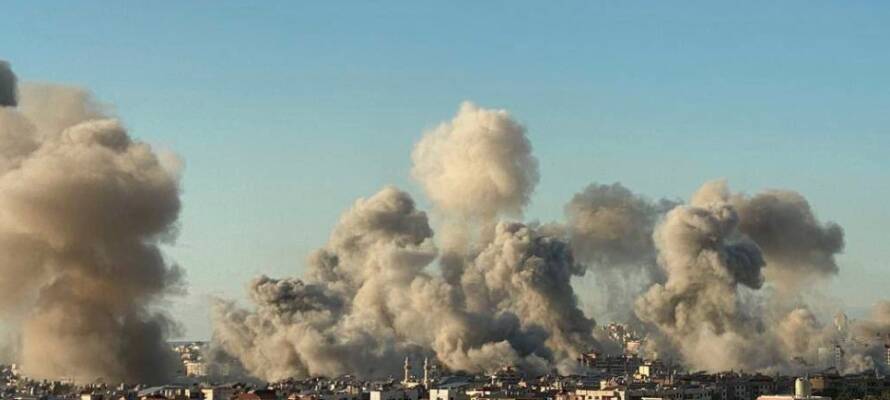‘If until now we have distinguished between the state of Lebanon and Hezbollah, and between Beirut as a whole and Dahiyeh, which we have struck very hard, this will no longer be,’ says Israeli defense minister.
By Pesach Benson, TPS
Israeli Defense Minister Israel Katz warned on Tuesday that if the ceasefire with Hezbollah collapses, the Israel Defense Forces would no longer make distinctions between Hezbollah and the Lebanese government.
“There will no longer be an exemption for the state of Lebanon,” said Katz, who was visiting the northern border.
“We will work with all our might to enforce all the understandings of the ceasefire agreement, and we show maximum response and zero tolerance,” he said
Regarding Hezbollah rocket fire at Mount Dov on Monday — the first barrage since the ceasefire went into effect — Katz insisted, “We will not allow Hezbollah to return to the old methods” and warned that Beirut must “authorize the Lebanese army to enforce their part, to keep Hezbollah away beyond the Litani [River] and to dismantle all the infrastructure.”
“If they don’t do it and this whole agreement collapses then the reality will be very clear. First of all, if we return to war we will act strongly, we will go deeper, and the most important thing they need to know, that there will no longer be an exemption for the state of Lebanon,” he said.
“If until now we have distinguished between the state of Lebanon and Hezbollah, and between Beirut as a whole and Dahiyeh, which we have struck very hard, this will no longer be,” Katz warned. Beirut’s Dahiyeh district is a Hezbollah stronghold where the terror group maintained its underground headquarters.
Also on Monday, IDF Spokesperson Rear Adm. Daniel Hagari warned Iran not to use Syria’s civil war to smuggle weapons to Hezbollah.
“What is happening in Syria concerns Syria and not Israel,” Hagari told Sky News Arabic, adding that Israel “will make sure that Iran does not smuggle weapons to Lebanon and Hezbollah.”
“Hezbollah was defeated in the campaign and it is necessary to make sure that it does not receive weapons from Iran through Syria,” Hagari said.
“And if they try to do it, we will act accordingly,” he stressed.
Under the terms of the ceasefire, Hezbollah is supposed to withdraw its armed presence from areas of southern Lebanon south of the Litani River. Israeli forces will also withdraw from southern Lebanon in stages. The Lebanese Armed Forces is to be deployed in southern Lebanon including along the 120 km border with Israel, as will monitors from the United Nations Interim Force in Lebanon.
After the Hamas attacks of October 7, 2023, Hezbollah began launching rockets and launching drones at northern Israel communities daily. More than 68,000 residents of northern Israel are displaced from their homes. Hezbollah leaders have repeatedly said they would continue the attacks to prevent Israelis from returning to their homes.
According to United Nations Security Council Resolution 1701, which ended the 2006 Second Lebanon War, Hezbollah is forbidden from operating in southern Lebanon south of the Litani River.
At least 1,200 people were killed, and 252 Israelis and foreigners were taken hostage in Hamas’s attacks on Israeli communities near the Gaza border on October 7. Of the 97 remaining hostages, more than 30 have been declared dead. Hamas has also been holding captive two Israeli civilians since 2014 and 2015, and the bodies of two soldiers killed in 2014.
